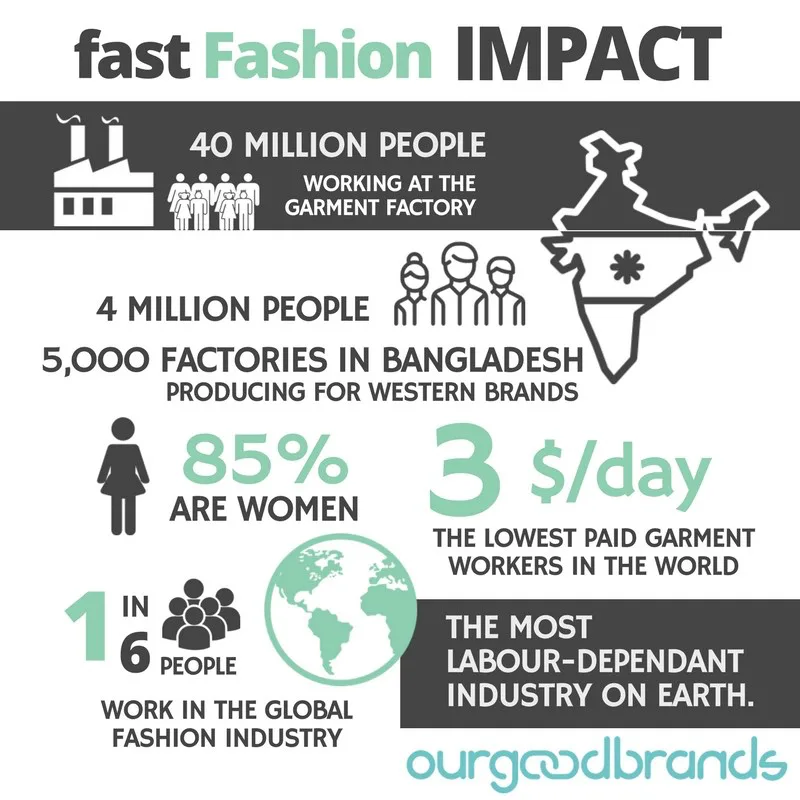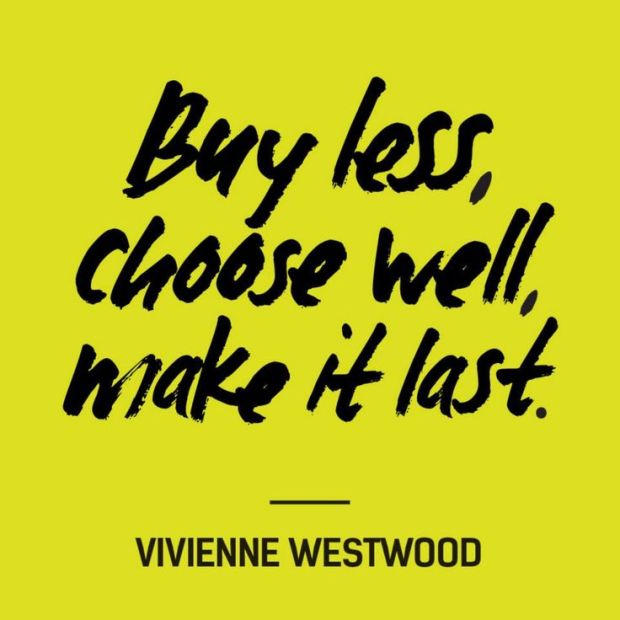It was January 2016 when I decided, after reading Jonathan Safran Foer’s “Eating Animals“, to stop eating meat. I’d read enough about chickens living in cages so small they couldn’t stand, lying in their own shit; about cows being electrocuted and abused for, really, no good reason; about pigs being pumped full of unnecessary growth hormones and antibiotics that are still present in the pork we eat. It was a lot, and while I knew that a life of hardcore animal rights activism was probably not in my future, I also knew that it would cost me very little (and probably benefit me long-term) to simply give up eating meat. That was the concrete action I could take. It wasn’t going to solve the whole massive problem, but I at least wouldn’t feel complicit in it anymore.
I had those same stirrings in my mind the other day when I watched “The True Cost” documentary on Netflix. The film is about the fast fashion industry, and its really wide-reaching environmental/human rights consequences. The director interviews factory workers in Cambodia, Bangladesh, Haiti, and other developing nations, where he’s told about atrocious conditions and salaries that are basically one tiny step above slavery. We see:
- devastating footage of the Rana Plaza factory collapse of 2013, where over 1,000 people were killed and around 2,500 injured in the deadliest structural collapse in recorded history (workers had reported cracks in the building in the days before the tragedy, but were forced to go back to work anyway)
- segments shot in Kanpur, India where local leather tanneries emit a shit-ton of toxic chemicals and pollutants into the environment, causing it to leak into the Ganges (which is already fucked up) and contaminate pretty much everything from the soil to the area’s drinking water. Not having even a passing competence in the correct scientific terminology, all I can tell you is that the number of children in the region born with birth defects is staggering, not to mention the incidences of cancer and other serious diseases
- landfills in Haiti, because the vast majority of donated clothing winds up not sold in thrift stores – it gets shipped overseas to countries where its massive presence depresses the local garment industry
There is just so much here – but none of it is exactly breaking news. Fast fashion creates unbelievable amounts of waste. And just like with the meat industry, that’s something that I’ve probably always known in the back of my mind, but just have never really been willing to address head on. For a lot of people who eat meat, ignorance is bliss – bacon and ribs and fried chicken taste good and if you don’t have to think about what happened before it got to your plate, everything’s golden. Fast fashion is cheap and cute, and we never have any real reason to think any deeper about how it got to our malls or our closets – this shirt is here and it’s $6 so let’s buy one in each color! I’m *super* fucking guilty. I’ve used up and thrown away more Target, Gap, and Old Navy t-shirts than I care to admit. Everyone has.

So…do I do what I did with meat? Can I quit fast fashion cold turkey? I can’t think of a good reason not to. I’m not in dire need of any new clothes at the moment; when I do need something new, I will probably have the time and financial resources to make a more ethical purchase. I don’t have to hit up the clothing section every time I go to Target. (And actually in Seattle I hardly go there anymore, because it’s a huge pain in the ass, but that’s a story for another day.) I am hardly a fashion plate; I wear what’s comfortable, reasonably cute/flattering, and affordable. For a lot of my life that has translated to 2/$12 Target tops and 5/$25 Victoria’s Secret undies, but I don’t know if I can continue doing that.
I’m not deluding myself. I know that a) my solo commitment won’t really change anything in the global marketplace, and b) I probably won’t always be able to find “ethical” alternatives to something I need, and c) fashion is hardly the only highly unethical and environmentally-damaging industry – hello cars, electronics, jewelry, plastics, etc etc etc. I’ll do *yet another* vegetarianism parallel – I don’t eat meat, but I haven’t gone full vegan, meaning I still consume dairy and eggs, despite knowing full well the shitty ways those cows and chickens are often treated before we get our milk and omelettes. I’m not perfect. I haven’t figured out how to live a 100% ethical life because it’s essentially impossible unless you’re going to go live in a commune where you make all your own clothes, grow your own food, never use transportation other than a bike or a canoe, yadda yadda yadda. So please don’t get too annoyed at my preaching. I’m not judging anyone else’s choices – this is just how I feel, knowing what I know.
“The True Cost” is pretty short on solutions (consumer capitalism basically has to end, is more or less the message), but there are lots of fair trade companies out there: Pact Apparel, Everlane, People Tree, Passion Lilie – I just ordered a cute ikat-print sweater from there today. It’s definitely more expensive and there’s no way around that – I guess my strategy is going to be a) just buy less in the first place because I already have a ton of clothes, b) adjust my mindset regarding how much a certain item should cost (although I just don’t see myself forking over $200 for a top), c) hunt for those sales like any good American.
